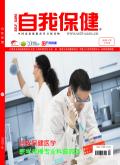THE IMPACT OF A BRIEF MINDFULNESS-BASED STRESS REDUCTION PROGRAM ON PERCEIVED QUALITY OF LIFE
引用次数: 16
Abstract
The purpose of this study was to determine if a five-week Mindfulness-Based Stress Reduction (MBSR) program, that incorporated mindfulness meditation and yoga, positively influenced perceived quality of life as defined and described by the World Health Organization (WHO). A quasi-experimental, nonequivalent control group, 2 × 2 repeated measures (pre/post) factorial design was used to examine an employee wellness program at a southwestern university. A total of 51 university employees participated in the study: 21 employees who were enrolled in the MBSR program (intervention group) and 30 randomly selected employees (comparison group). Fifty-two questions from the World Health Organization’s Quality of Life (QOL) questionnaire— the WHOQOL-100—tested the research hypotheses. The findings of this study indicate that the MBSR program has a positive influence on perceived quality of life specific to four domains measured in this study, i.e., physical, psychological, social, and spiritual. The biomedical model definition of health is currently the most widely used in medical research and simply conceptualizes health as the absence of disease or infirmity. However, the World Health Organization’s (World Health Organization, 2001a) most recent definition of health is based on a biopsychosocial model of medicine that considers the absence of disease or infirmity as well as a person’s physical, mental, and social well-being. The WHO’s model has gained increased popularity over the past 20 years (Larson, 1999). As a component of this一个简短的基于正念的减压计划对感知生活质量的影响
本研究的目的是确定一个为期五周的正念减压(MBSR)项目,包括正念冥想和瑜伽,是否对世界卫生组织(WHO)定义和描述的感知生活质量产生积极影响。采用准实验、非等效对照组、2 × 2重复测量(前/后)析因设计对西南某大学的员工健康计划进行了研究。共有51名大学员工参与了这项研究:21名参加了正念减压计划的员工(干预组)和30名随机选择的员工(对照组)。世界卫生组织生活质量问卷(whoqol -100)中的52个问题检验了这些研究假设。本研究的结果表明,正念减压计划对感知生活质量有积极的影响,具体到本研究测量的四个领域,即身体、心理、社会和精神。健康的生物医学模型定义是目前医学研究中使用最广泛的,它将健康简单地定义为没有疾病或虚弱。然而,世界卫生组织(世界卫生组织,2001年a)对健康的最新定义是基于医学的生物心理社会模型,该模型考虑到没有疾病或虚弱以及一个人的身体、精神和社会福祉。世界卫生组织的模式在过去20年中越来越受欢迎(Larson, 1999)。作为这个的一个组成部分
本文章由计算机程序翻译,如有差异,请以英文原文为准。
求助全文
约1分钟内获得全文
求助全文

 求助内容:
求助内容: 应助结果提醒方式:
应助结果提醒方式:


